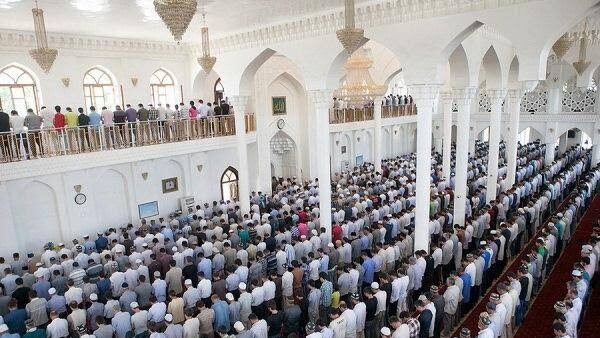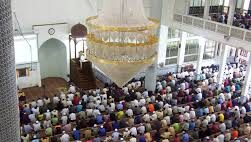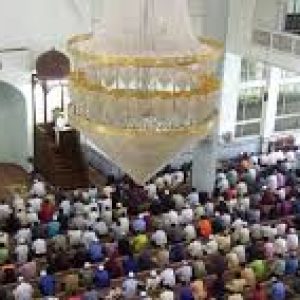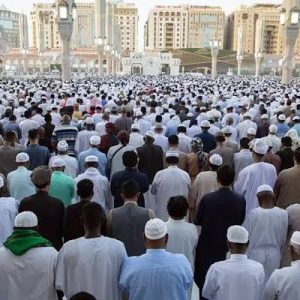The Importance of Jummah Prayer
Jummah prayer, or Friday prayer, is a profound ritual for Muslims across the globe. More than just a weekly obligation, it represents unity, reflection, and spiritual renewal. Observed during the early afternoon, it holds a unique place in the Islamic faith as a communal act of worship that brings people together under shared beliefs and values.
Muslims worldwide dedicate this special day to reconnecting with their faith, joining their local communities in prayer, and listening to a sermon, or Khutbah, delivered by the Imam. This gathering emphasizes the sense of brotherhood and the commitment to living in accordance with Islamic principles.
Why Timing Plays a Vital Role


The timing of Jummah prayer is critical to its observance. Scheduled during the time of Dhuhr (midday prayer), Jummah ensures Muslims can incorporate this spiritual practice into their routines. The precision of timing also signifies the discipline and respect associated with this act of worship.
However, Jummah prayer times vary based on the geographic location and season. In some countries, daylight savings and changing prayer schedules can affect the timing. Thanks to technological advancements, Muslims can now rely on mobile apps, digital calendars, and community boards to ensure they never miss this sacred obligation.
Jummah in the Context of Modern Life
In the hustle and bustle of modern life, the weekly Jummah prayer serves as a much-needed spiritual anchor. It offers a pause amid the chaos—a chance to step away from work, responsibilities, and worldly distractions. This weekly practice is cherished by Muslims as it helps realign their focus on spirituality and moral values.
The Khutbah delivered during Jummah prayer holds significant importance. It addresses not only religious themes but also practical life issues, societal challenges, and global concerns. Many Muslims find solace and motivation in these sermons, as they offer guidance on living a balanced and meaningful life.
A Day of Connection and Community
One of the most beautiful aspects of Jummah is its ability to bring people together. Regardless of socioeconomic status, ethnicity, or background, Muslims gather in mosques or community centers to pray shoulder-to-shoulder. This act symbolizes equality, humility, and unity in faith.
Jummah also serves as an opportunity to reconnect with friends and family members. For many, it is a day to catch up with loved ones and share moments of joy and togetherness. Mosques often serve as hubs of activity on Fridays, creating an atmosphere of vibrancy and solidarity.
Additionally, Jummah encourages charitable acts. Many mosques organize donation drives or distribute food to the needy after prayer. These acts of kindness reflect the values of compassion and generosity deeply embedded in Islamic teachings.
The Global Variation of Jummah Prayer Times
Jummah prayer times differ worldwide, reflecting the diversity of the global Muslim community. In Muslim-majority countries such as Indonesia, Saudi Arabia, and Pakistan, prayer times follow the natural rhythm of the day, typically aligning with the local Dhuhr prayer.
In countries with smaller Muslim populations, like the United States or Australia, Jummah prayer times may be slightly adjusted to accommodate work and school schedules. In many cases, mosques offer multiple prayer slots to ensure inclusivity and flexibility.
Technology has made it easier than ever to stay updated with accurate prayer times. Apps and websites provide location-specific timing, along with reminders and notifications, helping Muslims maintain their commitment to this weekly obligation.
The Spiritual Routine of Jummah
Jummah prayer holds a unique place in the weekly routine of Muslims. It is a time for spiritual reflection and reconnection, serving as a moment to prioritize faith amidst the demands of daily life. This consistent practice instills discipline and fosters a sense of purpose.
For many families, Jummah is a tradition passed down through generations. Children accompany their parents to the mosque, learning the significance of communal worship and the values of faith. This exposure at a young age helps instill a lifelong connection to Islam and its practices.
Making Fridays Special
Fridays are often considered the most blessed day of the week in Islam. Muslims prepare for Jummah prayer by taking extra steps to honor the sanctity of the day. These practices include performing ghusl (ritual purification), wearing clean and modest attire, applying perfume, and reciting specific verses from the Quran, such as Surah Al-Kahf.
The day also serves as an opportunity for self-reflection and gratitude. Muslims are encouraged to engage in extra prayers, make supplications, and seek forgiveness. For many, this spiritual preparation enhances the significance of the Jummah prayer itself.
In addition to its religious aspects, Jummah is also a social event. After prayer, many Muslims gather for meals, discussions, or community events. These interactions strengthen bonds and promote a sense of belonging within the Muslim community.
Technology Meets Tradition
In today’s digital age, technology has transformed the way Muslims engage with Jummah prayer. From live-streaming Khutbahs to virtual prayer groups, technology has made it possible for Muslims to participate in Jummah even if they are unable to attend in person.
This is particularly beneficial for those living in remote areas or facing physical or logistical challenges. By blending tradition with technology, the essence of Jummah prayer remains intact, ensuring inclusivity and accessibility for all worshippers.
The Lasting Impact of Jummah
The impact of Jummah extends far beyond the prayer itself. It serves as a reminder of the values and principles that guide a Muslim’s life—faith, humility, generosity, and community. Each week, Jummah offers a fresh start, allowing worshippers to renew their intentions and strive for spiritual growth.
For many, Jummah is a source of strength and inspiration. It helps them navigate the challenges of life with resilience and grace, rooted in the teachings of Islam. By consistently prioritizing Jummah, Muslims demonstrate their unwavering commitment to their faith and their community.
A Timeless Tradition
Jummah prayer is more than just a religious obligation—it is a celebration of faith and unity. Its relevance has endured through centuries, adapting to the needs of modern worshippers while preserving its core values.
As Muslims around the world gather each Friday, they reaffirm their shared beliefs and strengthen their connection to God and one another. Jummah is a timeless tradition that continues to inspire and uplift millions, serving as a beacon of hope, peace, and purpose in a rapidly changing world.
From the bustling streets of major cities to the serene corners of rural villages, the call to Jummah prayer resonates as a powerful reminder of the unifying power of faith. It is a sacred moment that transcends borders, cultures, and generations, bringing hearts together in worship and gratitude.
Do Follow Uae stories for more updates










